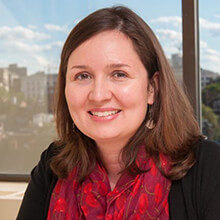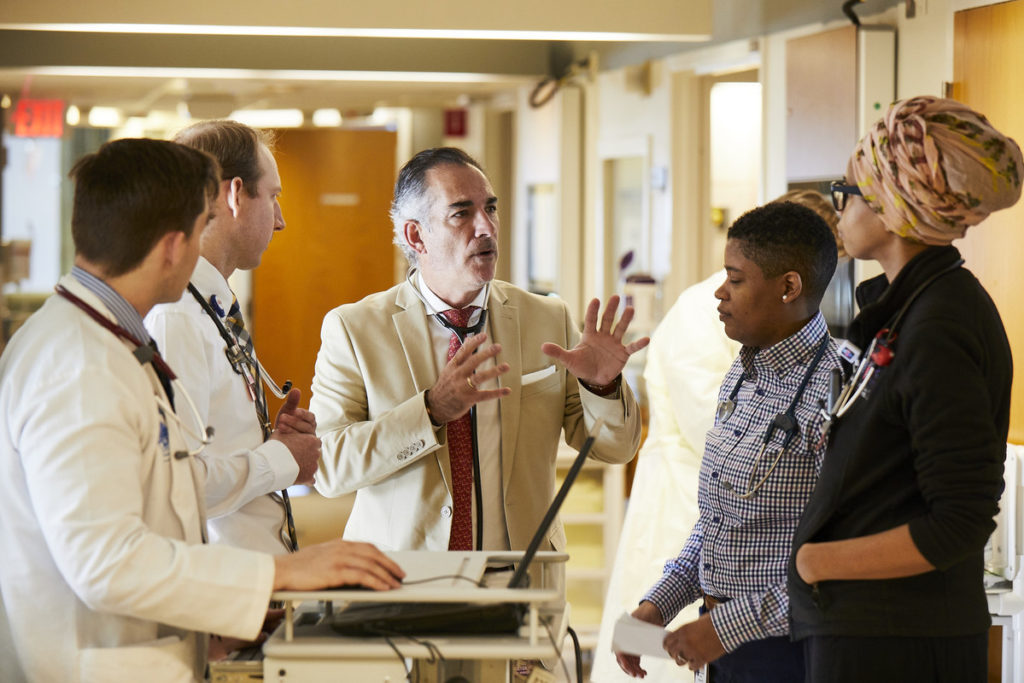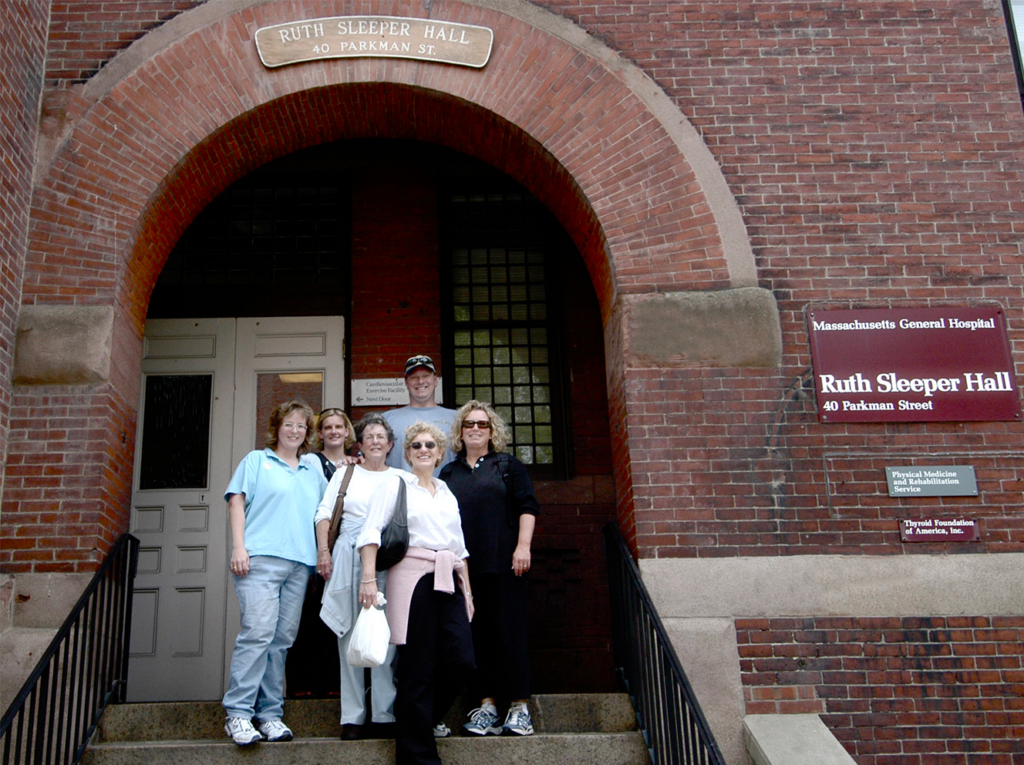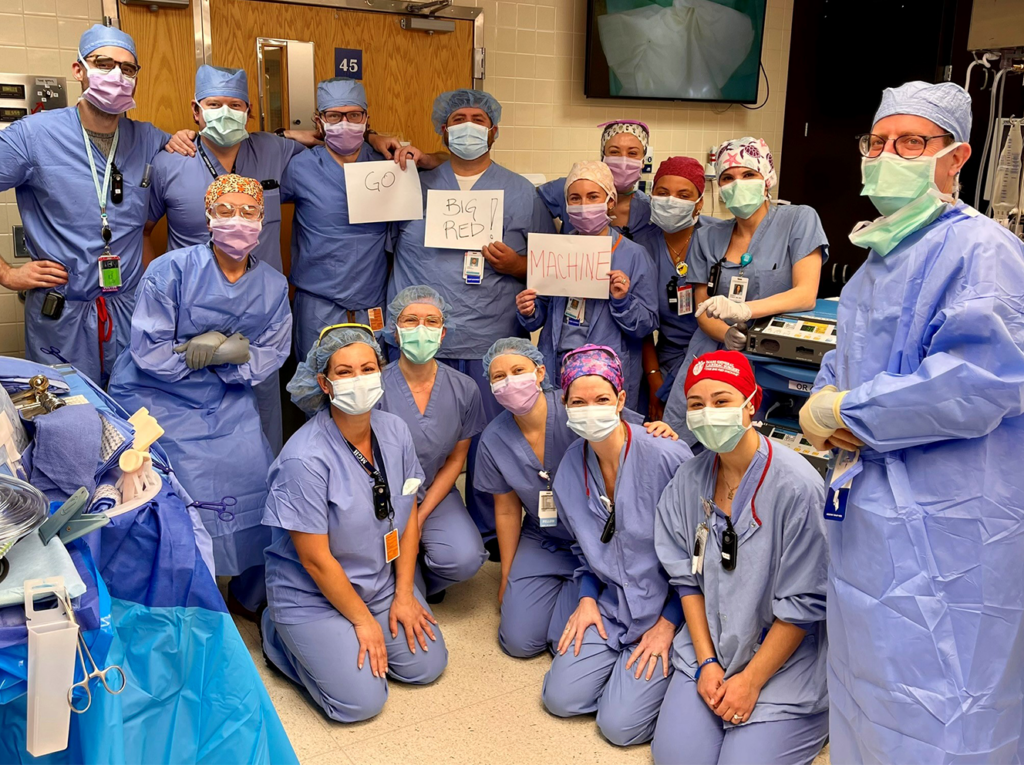Medical visits are the most important interactions between a doctor and a patient. But new volumes of information, the stress of an unexpected diagnosis, the impact of pain or illness, gaps in understanding — these factors can make appointments stressful and intimidating. Add the complexities of medical visits during the COVID-19 pandemic, and patients can easily become overwhelmed and anxious.
To alleviate the emotional and physical burden for patients, in 2021, the Health Decision Sciences Center at Massachusetts General Hospital launched the Patient Support Corps program. Here, through this program, premed college students serve as interns who work with patients ahead of medical visits. These interns call and ask if the patients would like support, then work with them to prepare a list of questions to take to their doctor’s appointment.

The program’s benefit is twofold: it helps patients navigate their appointments by addressing their concerns and involving them in their own care; and it provides authentic clinical experience and training for the next generation of health care providers. Through participation in the program, Patient Support Corps interns develop essential skills in listening to and engaging patients and learning to help patients feel prepared and empowered going into their appointments.
“Our mission is to make sure patients are informed, involved and receiving care that’s right for them,” says Karen Sepucha, PhD, director of the Health Decision Sciences Center. “This is an opportunity to amplify the patient’s voice, find out what they care about and make sure that this information drives the care they receive.”
A Team-Based Care Approach
As a doctoral student at Stanford University, Dr. Sepucha helped develop the original programs that form the basis of the Patient Support Corps model. That program is run out of the University of California San Francisco (UCSF) by Jeff Belkora, PhD, and breast surgeon Laura J. Esserman, MD, MBA, to create a team-based care approach for breast cancer. Dr. Sepucha saw the benefits of such a model in both routine and complex care, and worked to bring the Patient Support Corps program to Mass General.
“We have patients who are well-educated and capable, and we have others who have literacy challenges, comorbidities, memory concerns or symptoms that prevent them from expressing themselves,” Dr. Sepucha says. “We think everyone can find a benefit from a service like this.”
Those benefits became especially apparent during the COVID-19 pandemic for primary care physician, Leigh Simmons, MD, medical director at the Health Decision Sciences Center. Telemedicine, longer stretches between visits, shifts in hospital operations and just generally more things happening in patients’ lives meant that “the mechanics of an office visit were altered,” Dr. Simmons says.

“We had several patients with a new cancer diagnosis, and during their first visit to the oncologist, their support person couldn’t be with them in the office because of COVID-19 restrictions on visitors,” Dr. Simmons says. “A call to that patient from someone on our team beforehand, to help them organize their thoughts and questions about the medical consultation, was something we were interested in exploring.”
A Meaningful Care Experience for Patients and Students
In its first year, the Patient Support Corps program trained seven student interns in interview techniques to get to the heart of what a patient is feeling. The interns take an online course and then hone their skills with patient actors before working with real patients. After those conversations, the interns create a one-page, organized summary of the patient’s most pressing concern and questions, which the patient receives within 24 hours. This summary helps incorporate the patient’s voice, perspective and understanding of a health status or medical interaction before the medical visit occurs.

Patient Support Corps interns currently serve patients in primary care, orthopedics and certain cardiac specialties. Harvard University students, Anagha Kumar and Akila Muthukumar, currently serve as the head interns in the program. They both find that their experience in the Patient Support Corps offers meaningful clinical care experience within their interests — Anagha hopes to work in geriatric medicine, and Akila is exploring decision science, which is a collection of quantitative techniques used to inform decision-making at the individual and population levels.
“I shadowed a geriatrician who was doing this service on her own for her patients,” Anagha says. “When the Patient Support Corps is involved in this arena, it takes pressure off the physician and makes older adults feel more in control. They have greater autonomy in their appointments.”
“I had a patient who was anxious and asking a lot of things I couldn’t necessarily answer,” Akila says of a recent call. “I had to reevaluate what my role is as an intermediary. I can reassure them and get those concerns onto paper, so they don’t forget to ask the doctor during their appointment. Even though you don’t have the answers, there are ways you can help.”

Patient Support Corps interns also sometimes help connect patients with high-quality medical information about their condition. Dr. Sepucha and Dr. Simmons plan to have interns eventually accompany patients to their appointments and take notes, so patients don’t have to worry about remembering every detail of the visit.
“With enhanced preparation, we have a high-quality visit with excellent follow-up. It improves what we’re already doing and makes that even more valuable,” Dr. Simmons says. “It means good decisions and good care for Mass General patients, and it really makes the absolute best use of the office visit time.”
To learn more about how you can support the Patient Support Corps, please contact us.






